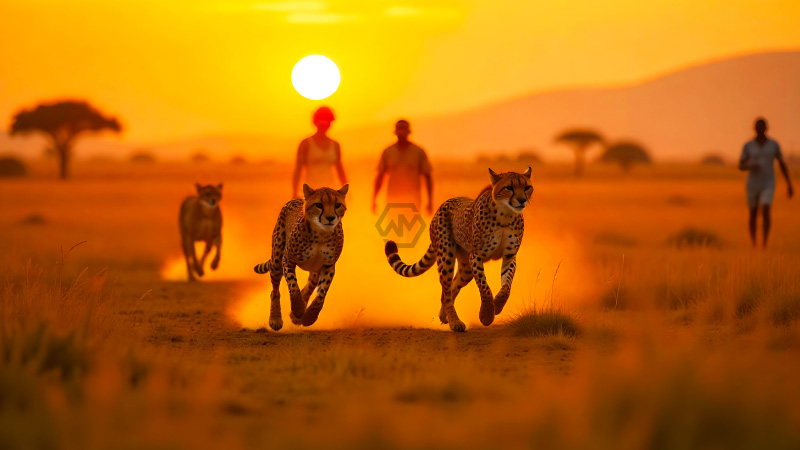- 24 African cheetahs, including 12 cubs, will be released into the wild in Kuno National Park starting at the end of October 2024.
- The release follows delays after a cheetah’s death in August, with officials aiming to restore a population of 60-70 cheetahs over 25 years.
- Negotiations are underway with South Africa and Kenya to bring more cheetahs for reintroduction at Gandhi Sagar Wildlife Sanctuary.
The long-awaited release of African cheetahs at Kuno National Park is set to begin at the end of October 2024. After being held in captivity since their translocation from Namibia and South Africa, these cheetahs have been living in semi-wild enclosures while awaiting full release.
The project, overseen by the National Tiger Conservation Authority (NTCA), aims to reintroduce a population of cheetahs in India for the first time in over seven decades.
Cheetahs to Finally Roam Free in Kuno: Phased Release Starts October-End
Efforts to manage the cheetahs in captivity have been challenging, with experts expressing concerns about the animals losing their wild traits during the extended confinement. To address these concerns, the NTCA has utilized advanced darting techniques and minimal human interaction to ensure the cheetahs retain their natural instincts. Despite setbacks, the project is part of a long-term plan to establish a stable population of cheetahs in the Indian wilderness, with future translocations planned for the Gandhi Sagar Wildlife Sanctuary.
The project has faced multiple challenges since its launch, including the recent death of a Namibian cheetah and previous fatalities linked to infections. These incidents delayed the release of the remaining cheetahs, but authorities have now finalized plans for a phased approach. Wildlife experts have raised concerns about the impact of prolonged captivity on the cheetahs’ natural behaviors, emphasizing the need for careful monitoring once they are released.
To mitigate risks, the National Tiger Conservation Authority (NTCA) has implemented new techniques for handling and immobilizing the cheetahs, reducing human contact to preserve their wild instincts. The cheetahs have been kept in semi-wild conditions, with access to natural prey like chital and nilgai, in an effort to ease their transition to full wilderness life. Additionally, authorities are actively removing competing predators, such as leopards, from the designated release areas.
Looking ahead, the Indian government is also negotiating with South Africa and Kenya to translocate more cheetahs for a similar release at Gandhi Sagar Wildlife Sanctuary. The ultimate goal is to establish a viable population of 60-70 cheetahs in India over the next 25 years, making this the largest and most ambitious wildlife reintroduction project in the world.
The phased release of cheetahs in Kuno National Park is a hopeful step forward in restoring India’s wildlife heritage. With careful planning and execution, this project aims to secure a sustainable future for cheetahs in the country.
“The greatness of a nation and its moral progress can be judged by the way its animals are treated.” – Mahatma Gandhi



